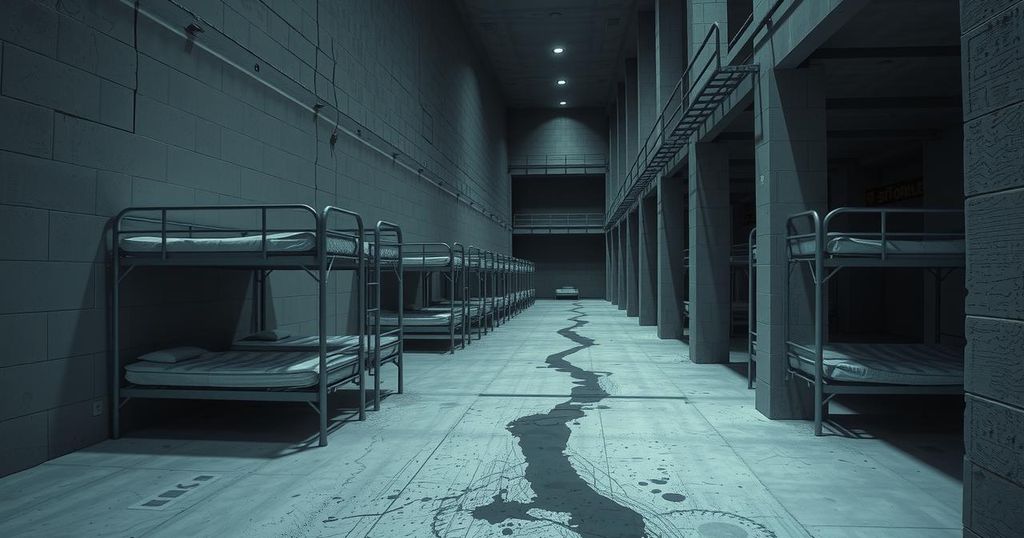The Deportation of Venezuelan Immigrants to El Salvador: Causes and Consequences

More than 200 Venezuelan immigrants were deported from the U.S. to El Salvador, accused of gang involvement. The decision was justified by the U.S. government as a response to a gang-related invasion. Salvadoran President Bukele offered prisons for detaining these immigrants, leading to significant court challenges on constitutionality and human rights concerns. Living conditions in detention have raised alarms, reflecting a broader history of violations in El Salvador.
On March 15, over 200 Venezuelan immigrants were deported from the U.S. to El Salvador, not Venezuela, after being accused of gang involvement. Anthropologist Ellen Moodie, known for her work on El Salvador’s post-war society, discussed this controversial decision with News Bureau editor Diana Yates. The U.S. administration justified the deportations as actions against an alleged invasion led by the Venezuelan gang Tren de Aragua.
The deployment of the Alien Enemies Act (AEA) by President Trump, an unprecedented move without a formal congressional declaration of war, allowed for the deportations. The AEA had historically been invoked primarily during times of war, as seen during World War II under similar circumstances. In this instance, officials later clarified that 137 deportees fell under the AEA while others were processed through standard deportation protocols.
El Salvador’s President Nayib Bukele proposed to detain deportees in the country’s notorious prisons during a meeting with U.S. Secretary of State Marco Rubio. The agreement included substantial financial compensation from the Trump administration, totaling $6 million to maintain those individuals in detention for one year, as the Salvadoran government assured it could accommodate the influx.
Legal perspectives on these actions have arisen, highlighted by a temporary restraining order issued against the AEA’s use during these deportations. This order was upheld by an appellate court, coinciding with Secretary of Homeland Security Kristi Noem’s visit to a high-security facility where the deported individuals are being held.
Reports indicate severely adverse living conditions for detainees at the center. They are often packed into overcrowded cells without basic necessities, such as proper bedding and hygiene. Observations from family interviews reveal that many detainees were arrested merely due to their appearance, with tattoos incorrectly associating them to gangs. Legal representatives assert that these individuals have no prior criminal records.
El Salvador’s observed history of human rights violations manifests from the pivotal civil war era between 1979-1992, leading to over 75,000 deaths. Although peace accords promised change, systemic human rights abuses persisted, and during recent gang violence escalated by emergency measures, the state has enacted numerous arrests without due process.
Since 2020, Bukele’s government has intensified crackdowns on gang affiliations, resulting in thousands of arrests without warrants. The current incarceration models play into a historical pattern of violence and impunity tied to previous civil strife.
The relationship between the U.S. and El Salvador under Bukele is evolving, marked by mutual interests in combating gang violence and potential shifts in diplomatic relations. These changes raise questions about the true motives behind such agreements, particularly in light of both leaders’ approaches to governance.
The fate of the deported Venezuelans remains uncertain, as Salvadoran officials categorize them as terrorists, obstructing their access to legal representation and leaving them without a status in both nations. Their entrapment in the Salvadoran prison system highlights the precarious nature of their rights and safety, given the lack of diplomatic relations between Venezuela and El Salvador.
The deportation of Venezuelan immigrants to El Salvador raises significant legal and humanitarian concerns. The use of the Alien Enemies Act, the ruling’s implications by U.S. courts, the substandard living conditions faced by detainees, and the history of human rights abuses in El Salvador all contribute to a complex issue with far-reaching consequences for those affected. The evolving relationship between the U.S. and El Salvador under authoritarian leadership introduces further uncertainty regarding the treatment and future of these individuals.
Original Source: news.illinois.edu







